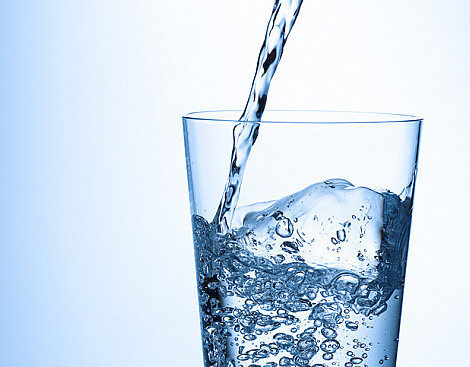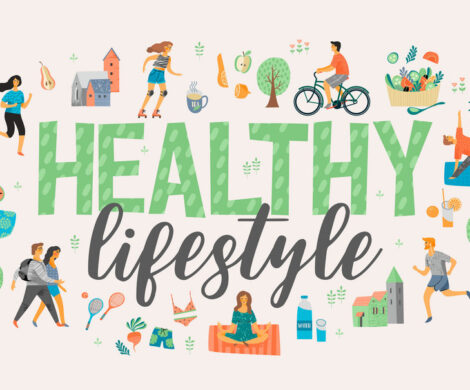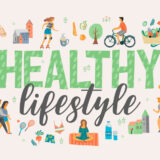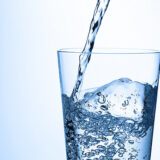6 Foods That Can Disrupt Your Hormonal Balance
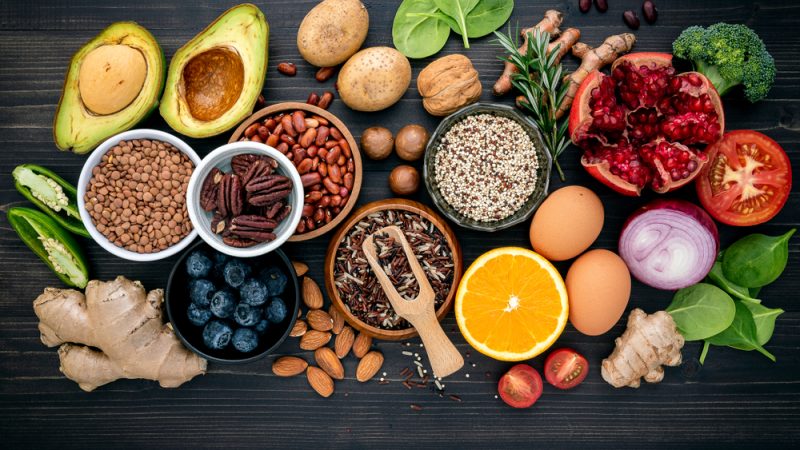
Keeping your hormonal system in balance is the key to optimal health, especially when it comes to fertility. Many factors affect your hormonal health, including the foods you eat every day. Some foods help your body produce and regulate hormones that aid in fertility, while others can wreak havoc on your system and make it more challenging to get pregnant. If you are thinking of getting pregnant after 35, it is important to avoid any foods that might adversely affect your ability to conceive. Discover six foods that can disrupt your hormonal balance and cause significant problems for your reproductive health. Also, learn what foods and supplements improve women’s reproductive health, so you can alter your diet to get in the best health for reproduction.
Source: Oleksandra Naumenko/Shutterstock.com
1. Alcohol
Alcohol is the number one substance to avoid when taking charge of your hormonal health. Alcohol use affects your pituitary gland and hypothalamus, which are both responsible for hormonal function in the body. Alcohol disrupts endocrine system function and adversely affects the immune and nervous system. Hormonal dysregulation caused by drinking alcohol can lead to:
- Thyroid problems
- Immune dysfunction
- Reproductive issues
- Increased stress
- Psychological disorders
- Higher risk of cancer and disease
Enjoying a small glass of wine or other alcoholic beverages occasionally will not induce these harmful effects. However, it is essential to limit your alcohol consumption, especially if you are trying to conceive.
2. Red Meat
Overconsumption of red and processed meat has been shown to increase estrogen levels in the body and increase breast cancer risk. Growth hormones used by livestock farmers can harm your body’s hormonal balance. Red meat also contains a higher saturated fat than meats like poultry or seafood. A moderate amount of red meat may not be harmful to your hormonal system, especially if it is from animals raised on a natural, grass-fed diet. However, consuming too much red meat from grain-fed animals raised in unhealthy conditions can impact your hormones and overall health.
3. Dairy
In some women, dairy foods can cause hormonal imbalance. Dairy can adversely affect your gut microbiome, which is connected to your brain through the gut-brain axis (GBA). When this occurs, your endocrine system falls out of balance, causing issues with hormones and mood.
Another concern regarding dairy and hormonal imbalance is the use of recombinant bovine growth hormone (rBGH) in dairy cattle. rBGH stimulates milk production by increasing the hormone insulin growth-like factor (IGF-1). Studies have shown that these hormones cause increased health problems in cows and lead to the use of higher levels of antibiotics in cattle. Although research surrounding rBGH is inclusive in humans, avoiding dairy products may be beneficial if you are sensitive to hormonal changes in your body.
4. Caffeine
When consumed in excess, caffeine can interfere with the hormonal balance in your body. Caffeine can increase cortisol levels, negatively impacting your body’s endocrine system and causing hormone imbalance. If you are considering getting pregnant after 40, you need to watch your caffeine intake. Research shows women who drink over 300 milligrams of caffeine per day may have an increased risk for miscarriage. This is equivalent to two to three cups of coffee or caffeinated soda. While the risks of too much caffeine are low, if you are currently trying to get pregnant and taking quality fertility supplements, it is probably worth avoiding caffeine in large quantities.
Source: Africa Studio/Shutterstock.com
5. Sugar
Sugar wreaks havoc on your body’s hormones, most notably insulin. Insulin imbalances affect multiple areas of your health, including your mood, sex hormones and your body’s ability to regulate blood sugar levels. Estrogen, progesterone and testosterone are all affected by your sugar intake, leading to problems with sexual functioning and increased stress levels. High-sugar diets can also negatively impact preovulatory hormone levels and exacerbate fertility issues associated with conditions like polycystic ovarian syndrome (PCOS). Women with PCOS often suffer from hormonal imbalances with leptin and insulin, leading to insulin resistance and anovulation.
6. Processed Foods
In general, processed foods are not good for your hormonal health. Pre-packaged and processed foods like cookies, crackers and jarred sauces contain high levels of sodium, sugar and fat, which increase your risk for health conditions, such as obesity, type 2 diabetes, cancer and heart disease. These foods also contain low levels of naturally occurring beneficial vitamins and nutrients, which negatively impact egg health and increase cortisol levels in your body. This can lead to increased stress and problems with infertility.
Source: New Africa/Shutterstock.com
What to Eat Instead
To help your body regulate hormone production and function, it is essential to eat a healthy diet. If you are concerned with fertility issues, it may also be helpful to supplement your diet with a high-quality DHEA supplement or a fertility supplement containing CoQ10/ubiquinol. Doing so can improve your cellular health, boost your egg health and rebalance your hormones. A hormonally healthy diet includes eating nutrient-rich foods. These include cruciferous vegetables, spices and seasonings, quality protein, healthy fats, whole grains and pre- and probiotic foods.
- Cruciferous vegetables
Include a variety of cruciferous vegetables into your diet. These include vegetables like cauliflower, kale, broccoli, collards and radishes.
- Spices
Some spices and seasonings have beneficial impacts on your health. Spices like paprika, garlic, ginger and turmeric add flavor to food and provide anti-inflammatory properties to your body.
- Quality protein
Opt for quality protein from legumes like chickpeas and beans and other plant-based proteins like tempeh, tofu and seitan and the many products made from them. Choose lean cuts of animal protein when possible to reduce the level of saturated fats you are consuming and avoid mercury-laden seafood.
- Healthy fats
Eat healthy fats when possible. Healthy fats include olive oil, avocado oil and other fats found in nuts and seeds like walnuts and almonds and sesame, sunflower and chia seeds.
- Whole grains
Choose whole grains over processed grains. Incorporate whole wheat or rye bread and pasta into your diet, along with oats, quinoa, barley and brown rice.
- Prebiotic foods
Fit fiber-rich prebiotic foods like green vegetables, onions and garlic, whole fruits and berries, legumes and whole grains into your diet plan to help your gut microbiome stay healthy. Yogurt, kefir and fermented vegetables are then good sources of probiotics to eat that will feed on the prebiotics and keep your gut healthy and in balance.
Develop Healthy Habits for Hormonal Health
Your hormones affect every aspect of your health. From emotions to cognitive function, to reproductive health and physical health, keeping your hormones in balance is important to living a healthy, happy life. By avoiding foods that negatively impact your hormones, such as alcohol, processed foods and sugar, you can improve your overall health and wellness.
Photo: Stocks


